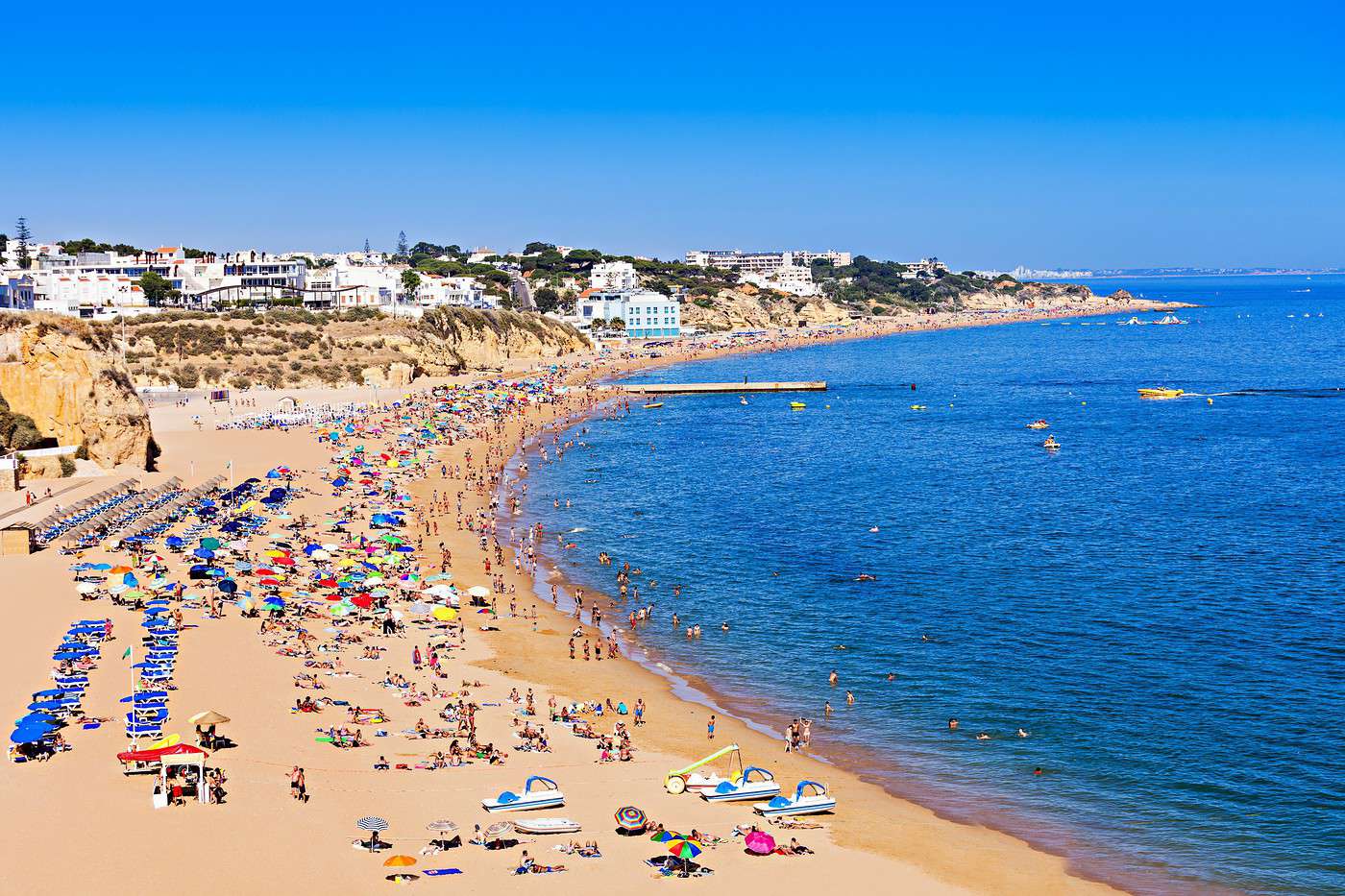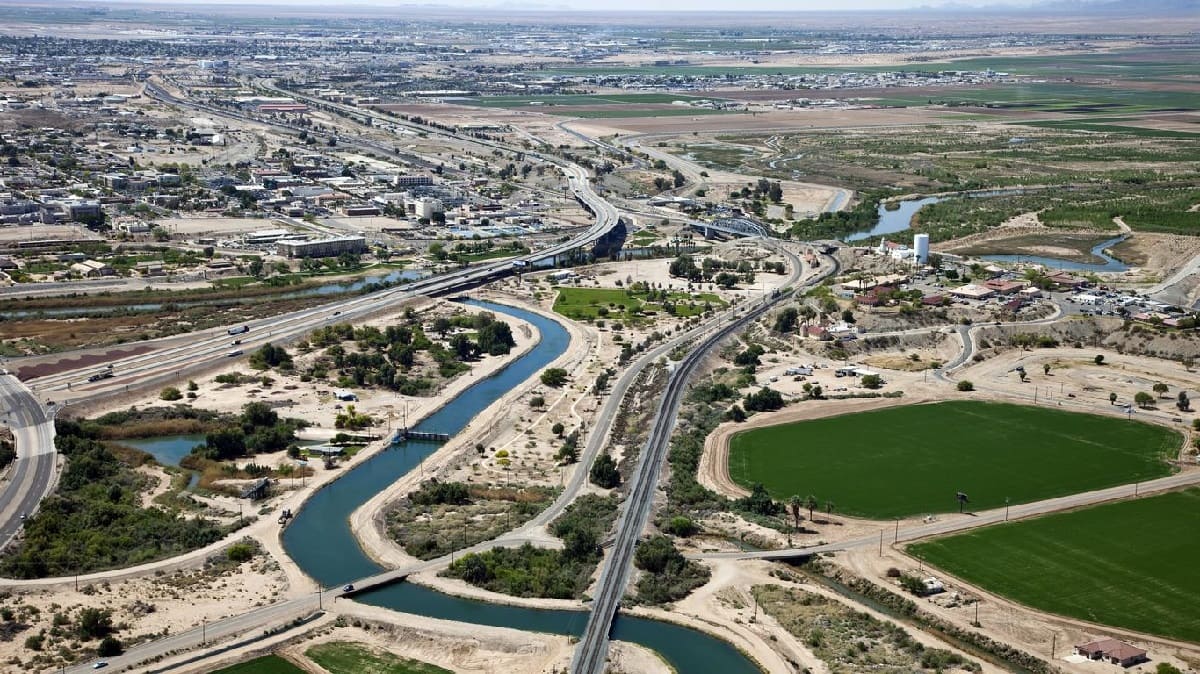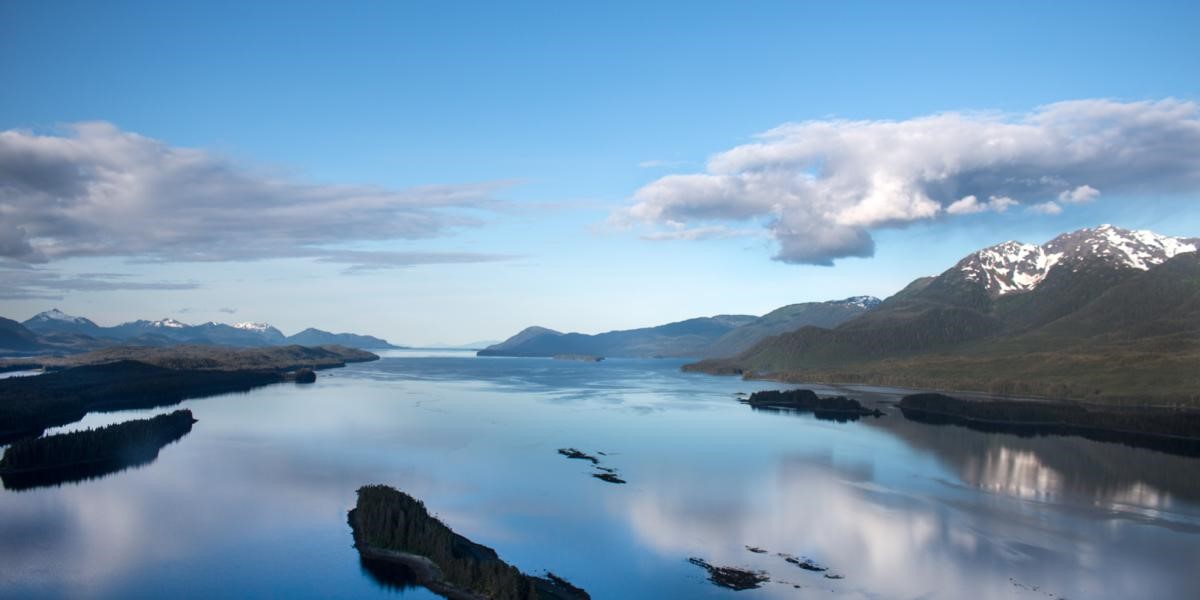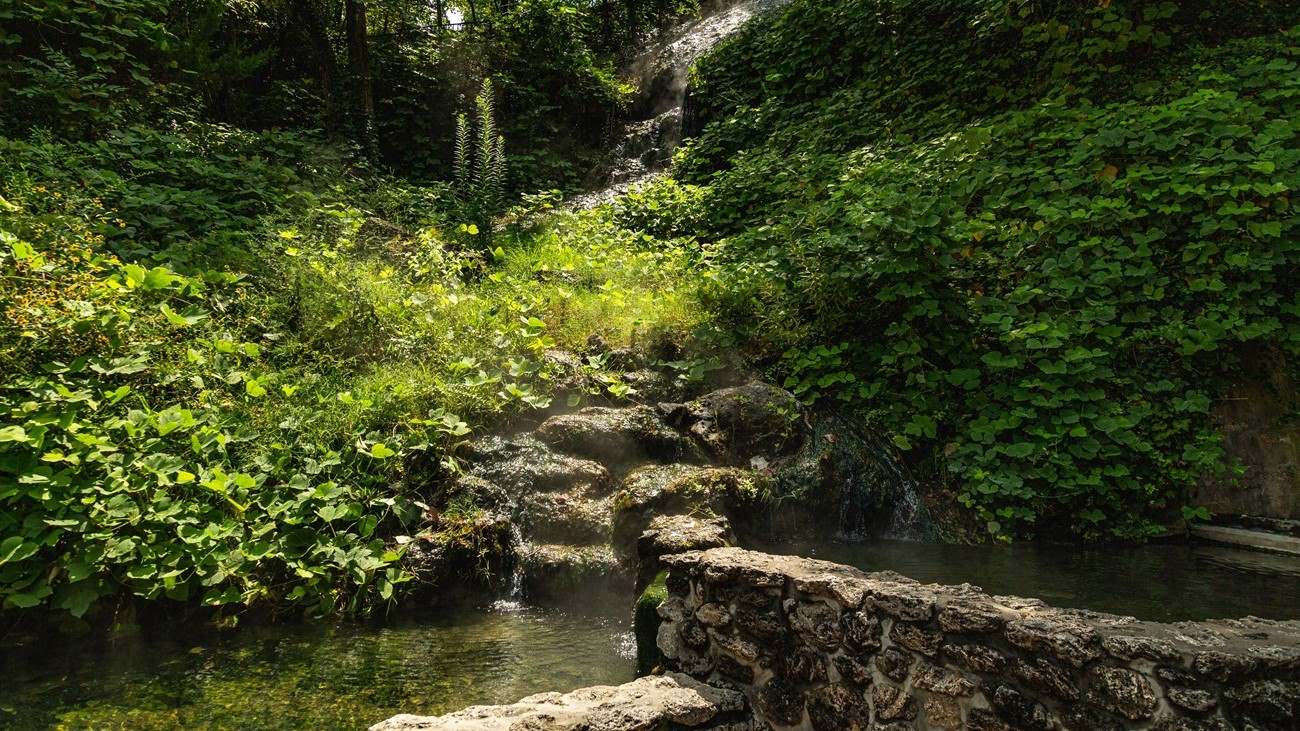Home>Weather and Climate>Portugal Weather: A Comprehensive Guide To Year-Round Climate


Weather and Climate
Portugal Weather: A Comprehensive Guide To Year-Round Climate
Published: April 7, 2024
Discover the diverse weather and climate of Portugal with our comprehensive guide, providing insights into the year-round conditions and what to expect during your visit. Gain valuable knowledge to plan your trip with confidence.
(Many of the links in this article redirect to a specific reviewed product. Your purchase of these products through affiliate links helps to generate commission for Temperatures.com, at no extra cost. Learn more)
Table of Contents
Introduction
Portugal, a captivating country nestled on the Iberian Peninsula, boasts a diverse and enchanting climate that beckons travelers year-round. From the sun-kissed beaches of the Algarve to the lush vineyards of the Douro Valley, Portugal's weather patterns play a pivotal role in shaping the country's landscapes and lifestyle. Understanding the nuances of Portugal's climate is essential for anyone seeking to make the most of their visit, whether it's a leisurely coastal retreat or an exploration of historic cities steeped in tradition.
In this comprehensive guide, we delve into the distinct weather patterns that define Portugal's various regions throughout the year. From the balmy Mediterranean climate of the south to the temperate maritime climate of the north, Portugal's diverse topography gives rise to an array of microclimates, each with its own unique charm. Whether you're drawn to the vibrant bustle of Lisbon, the timeless allure of Porto, or the tranquil beauty of the Azores and Madeira islands, understanding the weather nuances will help you plan an unforgettable journey.
Throughout this guide, we'll explore the seasonal shifts that shape Portugal's weather, offering insights into the temperatures, precipitation, and overall conditions that visitors can expect during spring, summer, autumn, and winter. Additionally, we'll provide valuable tips on the best times to visit Portugal based on individual preferences, as well as essential packing suggestions tailored to each season. By the end of this guide, you'll be equipped with the knowledge needed to make the most of your Portuguese adventure, no matter the time of year.
Join us as we embark on a captivating journey through Portugal's ever-changing weather and climate, uncovering the secrets that make this country a perennial favorite among travelers seeking beauty, culture, and unforgettable experiences.
Read more: Tennessee Weather: A Year-Round Overview
Understanding Portugal's Climate Zones
Portugal's diverse topography gives rise to a rich tapestry of climate zones, each contributing to the country's unique charm and appeal. Broadly categorized, Portugal's climate can be segmented into three main zones: the Mediterranean climate in the south, the temperate maritime climate in the north, and the mountainous climate in the interior regions.
Mediterranean Climate
The southern region of Portugal, including the Algarve, is characterized by a Mediterranean climate. This zone is renowned for its long, hot summers and mild, wet winters. With over 300 days of sunshine annually, the Algarve epitomizes the quintessential Mediterranean lifestyle, offering sun-drenched beaches and balmy evenings. The average summer temperatures range from 25°C to 30°C, making it an idyllic destination for beachgoers and sun-seekers. In contrast, winter brings moderate rainfall and temperatures averaging around 12°C to 15°C, creating a pleasant environment for exploring the region's cultural and natural attractions.
Temperate Maritime Climate
Moving northward, Portugal's central and northern regions, including Lisbon and Porto, are influenced by a temperate maritime climate. This zone is characterized by relatively mild, rainy winters and comfortable summers. The Atlantic Ocean exerts a moderating influence on temperatures, resulting in cooler summers and milder winters compared to the Mediterranean zone. Summer temperatures typically range from 20°C to 25°C, providing a refreshing escape from the scorching heat further south. Winters are mild, with average temperatures hovering around 8°C to 14°C, accompanied by moderate rainfall that nourishes the verdant landscapes of this region.
Mountainous Climate
Inland Portugal, particularly the mountainous regions such as the Serra da Estrela, experiences a mountain climate characterized by cooler temperatures and more pronounced seasonal variations. Winters are notably colder, often bringing snowfall to the higher elevations, while summers are pleasantly warm. The rugged terrain and elevated plateaus create a distinct microclimate, attracting outdoor enthusiasts seeking hiking, skiing, and other alpine activities.
Understanding these climate zones is essential for travelers, as it enables them to tailor their experiences based on their preferences and interests. Whether it's basking in the Mediterranean sun, exploring the cultural riches of the central regions, or embracing the natural splendor of the mountains, Portugal's diverse climate zones offer something for every discerning visitor.
Spring Weather in Portugal
As spring unfolds across Portugal, a sense of renewal permeates the air, infusing the country with a vibrant energy and a kaleidoscope of colors. Spanning from March to May, spring heralds the awakening of nature, with blooming flowers, verdant landscapes, and an invigorating ambiance that beckons travelers to embrace the outdoors.
In the southern Algarve region, spring brings a delightful transition from the mild winter months to the balmy summer season. As temperatures gradually rise, the Algarve's coastline becomes a haven for sun-seekers and water enthusiasts. With average temperatures ranging from 15°C to 20°C in March and climbing to 20°C to 25°C in May, spring in the Algarve offers an ideal climate for leisurely beach strolls, al fresco dining, and invigorating dips in the crystalline waters of the Atlantic Ocean.
Moving northward to the central regions, including Lisbon and Porto, spring unveils a tapestry of natural beauty and cultural vibrancy. The temperate maritime climate brings mild, pleasant weather, with temperatures ranging from 15°C to 20°C in March and reaching 20°C to 25°C in May. This period is characterized by longer daylight hours, making it perfect for exploring the historic streets, lush parks, and waterfront promenades that define these iconic cities. Spring also marks the onset of various festivals and events, offering visitors a glimpse into Portugal's rich traditions and lively celebrations.
In the interior mountainous regions, spring breathes new life into the rugged landscapes, with wildflowers carpeting the meadows and snow-capped peaks gradually yielding to the warmth of the season. While temperatures in March may still hover around 5°C to 10°C, they rise to a comfortable 15°C to 20°C by May, creating an inviting environment for outdoor pursuits such as hiking, birdwatching, and nature photography.
Throughout Portugal, spring brings a sense of renewal and optimism, making it an ideal time to immerse oneself in the country's natural splendor, cultural heritage, and outdoor activities. Whether it's savoring the first blooms of spring in the Algarve, exploring the historic charm of Lisbon and Porto, or embarking on alpine adventures in the interior, Portugal's spring weather sets the stage for unforgettable experiences and cherished memories.
Summer Weather in Portugal
Summer in Portugal casts a spell of sun-drenched days, azure skies, and a palpable sense of joie de vivre. From June to August, the country basks in the embrace of summer, offering a myriad of experiences that cater to every inclination and preference.
In the southern Algarve, summer unfolds as a symphony of warmth and vitality. The Mediterranean climate bestows upon this region long, sunlit days and balmy evenings, creating an idyllic backdrop for beach enthusiasts and leisure seekers. With average temperatures ranging from 25°C to 30°C, the Algarve's golden shores beckon visitors to indulge in sunbathing, water sports, and leisurely walks along the coastline. The refreshing sea breeze provides a welcome respite from the midday heat, while the abundance of beachfront cafes and restaurants offers delightful opportunities to savor fresh seafood and local delicacies against the backdrop of the shimmering ocean.
Venturing northward to Lisbon and Porto, the temperate maritime climate tempers the summer heat, offering comfortable conditions for exploration and cultural immersion. Average temperatures range from 20°C to 25°C, creating an inviting atmosphere for sightseeing, alfresco dining, and leisurely cruises along the Tagus River and Douro River. The extended daylight hours provide ample time to wander through historic neighborhoods, visit iconic landmarks, and partake in the vibrant cultural scene that animates these captivating cities during the summer months.
In the interior mountainous regions, summer unveils a refreshing escape from the coastal warmth, with temperatures averaging around 15°C to 25°C. The rugged terrain and pristine natural landscapes beckon outdoor enthusiasts to embark on hiking expeditions, nature walks, and explorations of the picturesque villages nestled amidst the mountains. The cooler temperatures and invigorating mountain air create an ideal setting for those seeking tranquility and natural beauty away from the bustling coastal areas.
Throughout Portugal, summer weaves a tapestry of experiences, from the sun-soaked beaches of the Algarve to the cultural riches of Lisbon and Porto, and the serene allure of the mountainous interior. Whether it's savoring the coastal splendor, immersing in urban charm, or communing with nature, Portugal's summer weather invites visitors to embrace the season's abundance and create cherished memories amidst the country's diverse landscapes and cultural tapestry.
Autumn Weather in Portugal
As summer gracefully yields to the embrace of autumn, Portugal undergoes a captivating transformation, painting its landscapes with a rich tapestry of colors and infusing the air with a sense of tranquility and nostalgia. Spanning from September to November, autumn in Portugal unveils a medley of weather patterns that vary across the country's diverse regions, offering a spectrum of experiences for visitors seeking to immerse themselves in the season's allure.
In the southern Algarve, autumn unfolds as a harmonious blend of lingering warmth and the gradual transition towards the cooler months. The Mediterranean climate bestows upon this region a gentle easing of temperatures, with average highs ranging from 20°C to 25°C in September and gradually tapering to 15°C to 20°C by November. The balmy days and mild evenings create an inviting ambiance for leisurely beach outings, coastal walks, and explorations of the region's charming towns and villages. The sea retains its summer warmth, inviting swimmers and water enthusiasts to savor the last vestiges of the beach season before the quieter, off-peak period sets in.
Moving northward to Lisbon and Porto, autumn casts a spell of enchantment, adorning the cities with a palette of golden hues and a sense of cozy sophistication. The temperate maritime climate brings mild, pleasant weather, with temperatures ranging from 20°C to 25°C in September and gradually cooling to 15°C to 20°C by November. The soft sunlight bathes the historic streets, riverside promenades, and verdant parks in a warm glow, creating an inviting backdrop for cultural explorations, culinary delights, and leisurely cruises along the tranquil waterways. Autumn also heralds the arrival of cultural events, harvest festivals, and art exhibitions, offering visitors a glimpse into the vibrant tapestry of Portuguese traditions and creativity.
In the interior mountainous regions, autumn unfolds as a breathtaking spectacle of nature's artistry, as the rugged landscapes are adorned with a mosaic of crimson, gold, and amber foliage. The temperatures gradually transition from the crispness of early autumn, with highs around 15°C to 20°C in September, to the cooler embrace of late autumn, with highs ranging from 10°C to 15°C in November. This season beckons outdoor enthusiasts to embark on invigorating hikes, nature walks, and explorations of the quaint mountain villages, where the traditions of rural life intertwine with the splendor of the changing seasons.
Throughout Portugal, autumn weaves a narrative of transition and beauty, inviting visitors to savor the nuances of the season, from the lingering warmth of the Algarve to the cultural richness of Lisbon and Porto, and the serene majesty of the mountainous interior. Whether it's savoring the coastal tranquility, immersing in urban sophistication, or communing with nature's artistry, Portugal's autumn weather sets the stage for unforgettable experiences amidst the country's diverse landscapes and cultural tapestry.
Winter Weather in Portugal
Winter in Portugal unfolds as a captivating tale of contrasts, weaving a narrative that encompasses the sun-kissed southern coast, the historic cities of the central regions, and the snow-dusted peaks of the interior. Spanning from December to February, winter bestows upon Portugal a diverse array of weather patterns that invite travelers to embrace the season's unique charm and experiences.
In the southern Algarve, winter unveils a tranquil ambiance, as the Mediterranean climate gently yields to cooler temperatures and a quieter pace. While the region experiences mild, wet winters, with average temperatures ranging from 12°C to 15°C, the Algarve retains a sense of allure and tranquility. The coastal towns and villages exude a serene charm, inviting visitors to explore the historic streets, savor the local cuisine, and partake in cultural experiences that offer a glimpse into the region's rich heritage. The off-peak season also presents an opportunity for nature enthusiasts to engage in birdwatching, coastal walks, and explorations of the region's natural reserves, where the winter light casts a soft, ethereal glow over the landscapes.
Moving northward to Lisbon and Porto, winter unfolds as a time of cultural richness and atmospheric allure. The temperate maritime climate brings moderate temperatures, with averages ranging from 8°C to 14°C, creating a comfortable environment for urban explorations, museum visits, and culinary indulgences. The cities come alive with seasonal festivities, including Christmas markets, traditional concerts, and vibrant street decorations that infuse the historic quarters with a sense of warmth and conviviality. The cooler temperatures also provide an ideal backdrop for savoring Portugal's renowned culinary delights, from hearty stews and seafood specialties to the comforting aroma of freshly brewed coffee in the city's iconic cafes.
In the interior mountainous regions, winter transforms the rugged landscapes into a winter wonderland, as snow blankets the peaks and valleys, creating a picturesque setting for alpine pursuits. The Serra da Estrela, Portugal's highest mountain range, becomes a playground for winter sports enthusiasts, offering opportunities for skiing, snowboarding, and snowshoeing amidst the pristine natural surroundings. The temperatures in the interior regions range from 0°C to 10°C, providing a refreshing escape for those seeking a winter retreat amidst the tranquility of the mountains.
Throughout Portugal, winter weaves a tapestry of experiences, from the coastal serenity of the Algarve to the cultural richness of Lisbon and Porto, and the alpine allure of the interior. Whether it's savoring the coastal tranquility, immersing in urban sophistication, or embracing the winter magic of the mountains, Portugal's winter weather invites visitors to embrace the season's diversity and create cherished memories amidst the country's captivating landscapes and cultural tapestry.
Best Times to Visit Portugal
Portugal's diverse climate and rich tapestry of experiences offer something for every traveler, regardless of the season. Understanding the best times to visit Portugal is essential for aligning your preferences with the country's weather patterns and cultural calendar. Whether you're drawn to the sun-drenched beaches of the Algarve, the historic charm of Lisbon and Porto, or the tranquil beauty of the interior regions, choosing the optimal time for your visit can enhance your overall experience.
Spring, spanning from March to May, emerges as an ideal time to visit Portugal for those seeking a balance between pleasant weather and fewer crowds. The countryside bursts into bloom, offering a picturesque backdrop for outdoor explorations and nature-centric activities. The temperatures are comfortably mild, making it conducive for leisurely strolls, cultural immersions, and al fresco dining experiences. Spring also marks the onset of various festivals and events, providing a glimpse into Portugal's vibrant traditions and cultural heritage.
Summer, from June to August, beckons sun-seekers and beach enthusiasts to the southern coast, where the Algarve's Mediterranean climate creates an idyllic setting for basking in the sun and indulging in water sports. The extended daylight hours and a myriad of outdoor events and music festivals contribute to the lively ambiance that defines Portugal's summer season. In the central and northern regions, summer offers a refreshing escape from the scorching heat, with comfortable temperatures and a wealth of cultural and culinary experiences to savor.
Autumn, spanning from September to November, unveils a captivating transformation across Portugal's landscapes, as the colors of fall paint the countryside with a rich tapestry of hues. The weather remains pleasant, making it an ideal time for exploring the historic cities, embarking on nature walks, and savoring the local gastronomy. Autumn also presents an opportunity to witness the grape harvest in the Douro Valley, offering a unique insight into Portugal's winemaking traditions.
Winter, from December to February, casts a spell of tranquility and atmospheric allure, particularly in the historic cities and the interior mountainous regions. The cooler temperatures create a cozy ambiance for cultural explorations, culinary indulgences, and alpine pursuits, making it an ideal time for those seeking a quieter, off-peak experience.
Ultimately, the best time to visit Portugal depends on your preferences and the experiences you seek. Whether it's the vibrant energy of spring, the sun-soaked days of summer, the enchanting colors of autumn, or the atmospheric charm of winter, Portugal invites you to embrace its diverse seasons and create unforgettable memories throughout the year.
Packing Tips for Different Seasons
Packing for a trip to Portugal requires careful consideration of the diverse weather patterns that define each season. Whether you're planning a beach getaway in the Algarve, a cultural exploration in Lisbon and Porto, or an alpine adventure in the interior regions, tailoring your packing list to the specific season can enhance your comfort and enjoyment throughout your journey.
Spring
In spring, it's essential to pack layers to accommodate the fluctuating temperatures. Lightweight, breathable clothing, including long-sleeved shirts, light sweaters, and comfortable trousers, will provide versatility as you transition from cooler mornings to warmer afternoons. A waterproof jacket or windbreaker is advisable, as spring showers are not uncommon. Comfortable walking shoes are a must for exploring the cobblestone streets and natural landscapes. Don't forget to pack sunscreen and sunglasses to shield yourself from the increasing sunshine.
Summer
For a summer sojourn in Portugal, prioritize packing lightweight, airy clothing to stay cool and comfortable in the Mediterranean warmth. Breathable fabrics such as cotton and linen are ideal, along with swimsuits, beach cover-ups, and sandals for leisurely beach days. A wide-brimmed hat and a reusable water bottle are essential for sun protection and staying hydrated. Additionally, pack insect repellent for outdoor activities and excursions.
Autumn
As autumn unfolds, packing layers becomes crucial to adapt to the changing temperatures. Bring a mix of long-sleeved shirts, sweaters, and a light jacket to stay cozy during cooler mornings and evenings. Comfortable walking shoes are essential for exploring the fall foliage and historic sites. Consider packing an umbrella or a compact raincoat to stay dry during occasional showers. Don't forget to include a camera to capture the stunning autumn landscapes and cultural experiences.
Winter
For a winter visit to Portugal, pack warm layers to combat the cooler temperatures, particularly in the interior mountainous regions. A mix of sweaters, thermal underlayers, and a waterproof, insulated jacket will keep you comfortable during outdoor activities. Sturdy, waterproof boots are essential for navigating potentially snowy or wet terrain. Additionally, pack gloves, a scarf, and a hat to stay warm during alpine pursuits. A compact umbrella or a packable raincoat is advisable for urban explorations in Lisbon and Porto.
Regardless of the season, it's advisable to pack a universal adapter for electronic devices, as well as a portable charger to stay connected during your travels. Lastly, remember to pack any specific medications, travel documents, and travel insurance information to ensure a smooth and enjoyable journey.
By tailoring your packing list to the distinct weather patterns of each season, you can optimize your comfort and preparedness for the diverse experiences that Portugal has to offer throughout the year.
Conclusion
In conclusion, Portugal's year-round climate offers a captivating tapestry of experiences, each season unveiling a unique allure that beckons travelers to immerse themselves in the country's diverse landscapes and cultural riches. From the sun-drenched beaches of the Algarve to the historic charm of Lisbon and Porto, and the serene majesty of the interior mountainous regions, Portugal's weather and climate play a pivotal role in shaping the country's allure as a perennial favorite among discerning travelers.
The understanding of Portugal's climate zones, from the Mediterranean warmth of the south to the temperate maritime climate of the central regions and the alpine allure of the interior, provides valuable insights for travelers seeking to tailor their experiences based on their preferences and interests. Whether it's basking in the Mediterranean sun, exploring the cultural riches of the central regions, or embracing the natural splendor of the mountains, Portugal's diverse climate zones offer something for every discerning visitor.
Spring unfolds as a time of renewal and vibrancy, with blooming landscapes and pleasant temperatures inviting outdoor explorations and cultural immersions. Summer casts a spell of sun-drenched days and coastal allure, offering a myriad of experiences for beach enthusiasts and cultural aficionados alike. Autumn paints a captivating transformation across Portugal's landscapes, adorning the countryside with a rich tapestry of colors and cultural festivities. Winter weaves a narrative of contrasts, from the tranquil coastal ambiance to the atmospheric allure of the historic cities and the winter magic of the mountains, inviting visitors to embrace the season's diversity.
Understanding the best times to visit Portugal, from the vibrant energy of spring to the sun-soaked days of summer, the enchanting colors of autumn, and the atmospheric charm of winter, empowers travelers to align their preferences with the country's weather patterns and cultural calendar, enhancing their overall experience.
By tailoring packing lists to the specific season, travelers can optimize their comfort and preparedness for the diverse experiences that Portugal has to offer throughout the year, ensuring a smooth and enjoyable journey.
In essence, Portugal's weather and climate, with its diverse seasons and captivating nuances, invite visitors to embrace the country's natural splendor, cultural heritage, and outdoor pursuits, creating cherished memories amidst the ever-changing landscapes and rich tapestry of experiences. Whether it's a leisurely coastal retreat, an exploration of historic cities, or an alpine adventure, Portugal's weather and climate set the stage for unforgettable journeys throughout the year.












